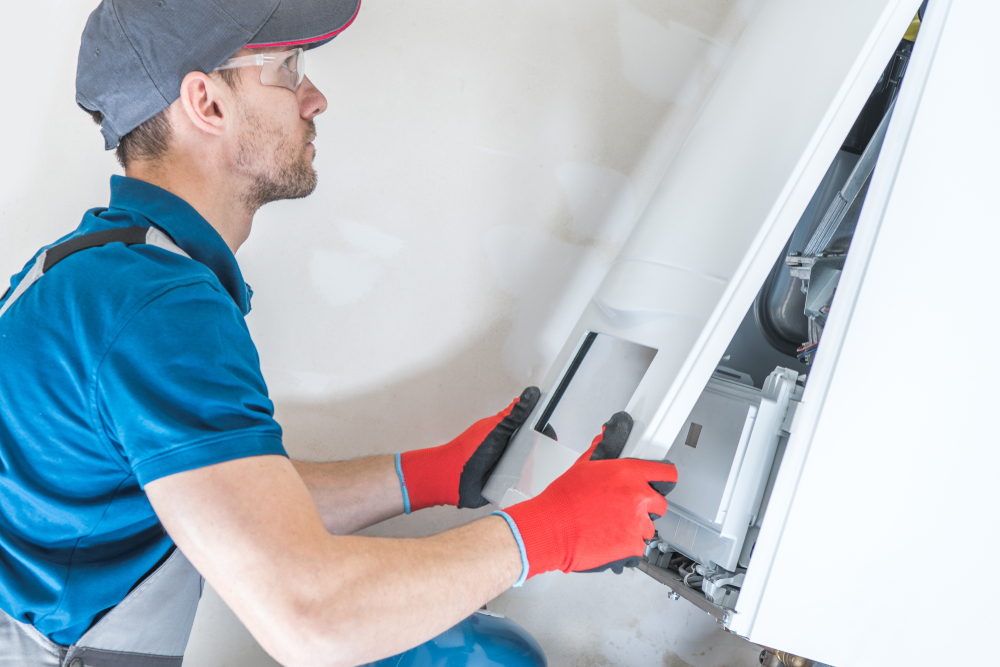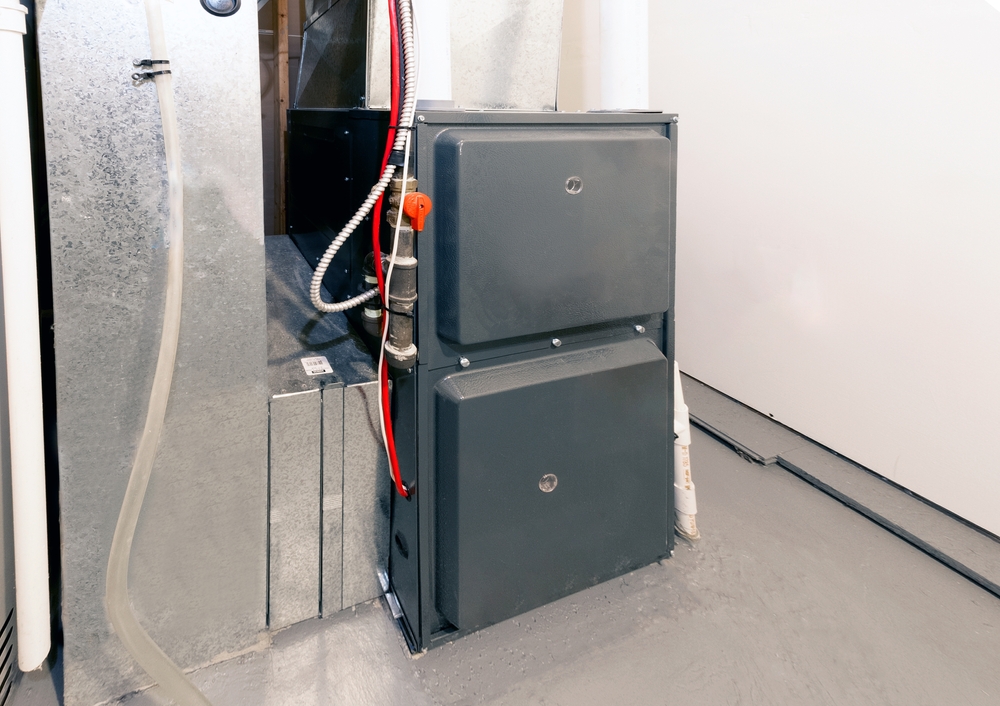In an era where winters are becoming more severe and energy costs continue to rise, the efficiency of your home heating system has never been more important. Thanks to modern advancements in furnace technology, efficiency levels have seen significant improvements, making it an opportune moment to assess your home’s heating system.
Serving Cedar Rapids, Iowa, since 1934, Novak Heating and Cooling is dedicated to helping you navigate the complexities of new furnace efficiency, ensuring your home remains warm and your heating system is as cost-effective as possible.
How to Measure Your Furnace Efficiency
Measuring the efficiency of your furnace is key to understanding how well it’s performing and can also help in making informed decisions about maintenance, upgrades, or replacements. Here’s how you can measure the efficiency of your existing heating system:
Understand AFUE Ratings
The most common measure of furnace efficiency is the Annual Fuel Utilization Efficiency (AFUE) rating. It represents the percentage of fuel converted into heat in a year relative to the amount of fuel supplied to the furnace. For example, a natural gas furnace with an AFUE of 90% means that 90% of the fuel is converted into heat, while the remaining 10% is lost in the combustion process or exhaust. The easiest way to find out the efficiency of your furnace is by checking its manual or the information sticker on the unit. This usually lists the AFUE rating.
Inspect Your Energy Bills
Compare your current energy bills with those from previous years, taking note of any significant changes in cost. While this won’t give you a precise AFUE rating, significant increases in your bills could indicate decreased energy efficiency.
Professional Energy Audit
For a more accurate assessment, consider a professional energy audit. HVAC professionals can conduct thorough inspections and tests, including a combustion efficiency test, to determine your furnace’s energy efficiency. This test, performed by HVAC technicians, measures the combustion gases produced by the furnace. By analyzing the content of these gases, they can determine how efficiently your furnace is burning fuel.
Usage Patterns and Maintenance History
Consider how often the furnace runs and its maintenance history. Well-maintained heating equipment is likely to be more efficient. Frequent cycling or a history of neglected maintenance can decrease efficiency as components such as the heat exchanger may wear down more quickly.
Age of the Furnace
Older furnaces generally have lower efficiency. If your furnace is over 15-20 years old, it’s likely less efficient compared to newer models, regardless of the AFUE rating at the time of purchase.
Why Furnace Efficiency Matters
Furnace efficiency is a crucial aspect of your home heating system, impacting not only your comfort but also your expenses and environmental footprint. Here’s a closer look at why it’s so important:
- Reduced Energy Bills: High-efficiency gas furnaces with a superior AFUE rating are more effective at converting fuel to heat. This means you get more warmth from each unit of energy, leading to significant savings on utility costs, especially during the cold winter months. The long-term savings from reduced energy consumption can offset the initial investment in a high-efficiency furnace, making it a financially savvy choice over time.
- Environmental Impact: High-efficiency furnaces use less fuel, which is key in conserving natural resources, whether it’s gas, oil, or electricity. By reducing fuel consumption, these furnaces emit fewer greenhouse gases, thereby lowering your home’s carbon footprint.
- Consistent Comfort: A high-efficiency heating system is better at providing even and reliable heating, which means a more comfortable indoor environment free from cold spots or drastic temperature variations.
Advancements in Furnace Technology
Recent years have witnessed impressive advancements in new furnace technology, leading to significant enhancements in their efficiency. These innovations have not only made electric furnace and natural gas furnace models more energy-efficient but also improved their overall performance and user control.
Variable Speed Blowers
Unlike traditional blowers that operate at one or two speeds, variable-speed blowers can adjust airflow speeds more precisely. This adaptability ensures a more consistent distribution of heat throughout your home, eliminating hot and cold spots. They consume less energy by operating at the exact speed necessary to maintain the desired temperature, rather than full power at all times. Variable speed airflow results in quieter operation, prolonged lifespan of the blower, and reduced electricity consumption.
Fully Modulating Gas Valve
Modulating gas valves represents a significant step forward in furnace technology. These valves can adjust the rate at which fuel is burned, effectively improving your furnace’s efficiency. By fine-tuning the amount of fuel used, these valves ensure that the furnace provides exactly the amount of heat needed, reducing wasted energy. This results in a consistent indoor temperature and higher overall furnace efficiency.
Smart Thermostat Compatibility
Modern furnaces are often compatible with smart thermostats, allowing for enhanced control over heating and energy savings. This compatibility enables homeowners to adjust the temperature remotely, set schedules, and monitor energy usage patterns. Smart thermostats can learn your preferences and habits over time, automatically adjusting the heating schedule for maximum efficiency and comfort. They can also provide insights into your heating system’s performance and notify you about necessary maintenance or efficiency issues.
Novak Heating and Cooling: Your Partner in Efficient Heating
At Novak Heating and Cooling, our goal is to help you strike an ideal balance between furnace efficiency, comfort, and cost-effectiveness. We recognize the vital role a furnace plays in your home, and we’re committed to guiding you to the best high-efficiency unit available.
As a Carrier® factory authorized dealer and a proud recipient of the Carrier® President’s Award, we bring unmatched expertise to each furnace installation or furnace replacement, catering to both residential properties and new construction projects. Our team is equipped to assist you in selecting an energy-efficient furnace that perfectly fits your home’s needs. Once you’ve made your choice, you can rely on our skilled heating contractor for a seamless furnace installation and removal of your old standard efficiency furnace.
But our relationship with your furnace doesn’t end post-installation. We’re here to support you throughout the lifespan of your heating systems with expert repair and maintenance services. To keep your furnace running at peak efficiency, we recommend joining our Worry-Free Maintenance Program. This comprehensive HVAC system maintenance plan includes seasonal tune-ups, priority service, and reduced rates for your heating and cooling system, from a natural gas furnace to a heat pump. Regular maintenance is crucial not only for sustaining efficiency but also for avoiding unexpected breakdowns and extending the life of your heater or air conditioning unit.
Are you ready to improve your home’s heating efficiency? Reach out to Novak Heating and Cooling today to explore your heating options.




